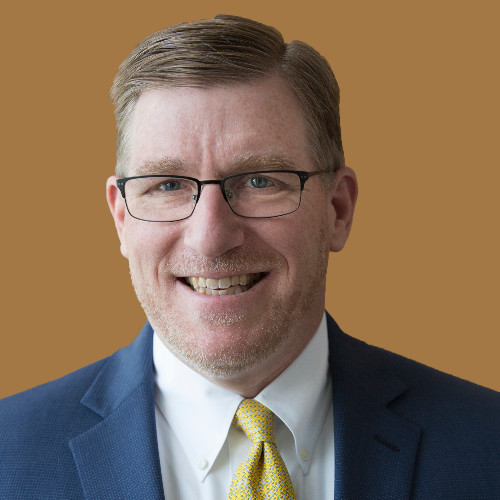Lifetime Income with Matt Wolniewicz
Even after we stop working, we still want consistent lifetime income. Matt Wolniewicz talks about how to make that happen with your 401(k)!
Listen to us On
About the Episode
We focused on creating lifetime income, the challenges of accumulating enough for retirement, how to take the money you’ve saved and make it last for as long as you need it to, the value of fiduciary advice, and how to get more guarantees in your retirement income, with Matt Wolniewicz, CEO of Income America.
Listen to hear a difference-making tip on how to position yourself for long-term financial success!
You can learn more about Matt at IncomeAmerica.com, X, and LinkedIn.
Did you get anything out of this episode? Do us a solid and leave a review:
https://ratethispodcast.com/alignedmoneyshow
Learn more and engage at MoneyAlignmentAcademy.com, Twitter, LinkedIn, Instagram, YouTube and Facebook.
Buy George G a coffee (he loves coffee)
https://www.buymeacoffee.com/lifeblood
Have George G speak
https://moneyalignmentacademy.com/speaking/
Financial literacy and wellness for individuals, families, and companies
https://moneyalignmentacademy.com/
Find George G’s books here
The Aligned Money Show is the podcast for Money Alignment Academy, copyright 2024.

George Grombacher
Host

Matt Wolniewicz
Guest
Episode Transcript
george grombacher 0:00
So, Matt, to get us started give me two truths and a lie, please.
Matt Wolniewicz 0:06
Hey, George, I, I am the the oldest child. And I have three younger sisters. I just recently finished up getting my my pilot’s license for privates. And Athena and I have six kids.
george grombacher 0:26
Oh my goodness. Oldest four, three younger sisters. Congratulations on just getting your pilot’s license and you got six kids. Amazing. I don’t think that you just finished your pilot license.
Matt Wolniewicz 0:42
Dammit, you’re right. You’re
george grombacher 0:46
are you actually studying and practicing to become a pilot?
Speaker 1 0:49
Now that’s my son. But we have the same names. So maybe maybe it does count George, that.
george grombacher 0:54
There you go. Did your son just just finish up? Congratulations to him?
Speaker 1 0:58
No, he’s, he’s, he’s, he’s in the middle of doing it.
george grombacher 1:01
Okay. All right. All right. Excellent. Well, good luck to him. And congratulations on being a wonderful big brother and a great dad. Matt. Thanks. Aside from that, what is top of mind for you right now, you
Speaker 1 1:16
know, top of mind, for me is the retirement savings crisis that we have in the United States. You know, Georgia, especially as the shift has gone on from a defined benefit, which is a traditional pension plan, to putting the burden on working Americans. It’s something that I’ve really spent my whole career thinking about, and am solely focused on. So it’s something that I that I think about all the time, you know, and especially when you think about it, you know, for our parents, they were pretty likely to, to, to work somewhere for a long time. And they were pretty likely to that once they retired, they had this guaranteed income stream, they also had some social security. And when we think about our generation, this is really the the first generation in America where the pension didn’t exist. And so the burden has been on the worker to save enough. And not only to save enough, but once they have decided that it’s time to retire to make sure that that money can last for as long as they live. So it’s a challenge one to save enough. And we know that people really haven’t saved enough, it’s, it’s a whole nother challenge that once people retire, that they can make that that nest egg that they’ve saved for last a lifetime.
george grombacher 2:33
Which are big challenges. And can you give me just a quick kind of a thumbnail of why it is that we don’t have pensions anymore.
Speaker 1 2:44
You know, there’s a lot of reasons for it. But really, there were some accounting changes that took place, and they put the burden on the employer to make sure that they had enough reserves to meet the obligations. And from a financial standpoint, once section 401 K came about, it became more advantageous for firms to move away from a pension plan to sponsoring a 401k. There’s tax advantages. And so that’s shifting of the burden, really, the only sectors that have pensions left, or either the government or some of the large, really large employers that have always had one. And even there, we’re seeing a move from the pension to the 401 K. And so the American workers really for the most part left holding the bag for making sure that they have enough money in retirement.
george grombacher 3:38
And that’s not necessarily a bad thing. It’s just that now we have the entire our huge, there’s tons of people and tons of resources being devoted to financial literacy and financial wellness to coach people up, because it’s not obvious that I have the skills as just a regular person to understand how much I need to be saving where I need to be saving it and all of those things.
Speaker 1 4:02
Well, and I would even take it a step further. I mean, you know, as the pension plan has disappeared, and the burden has fallen on to investors, there are definitely things that the government has done from a legislation process to mandate that we begin to help people save more. So back in 2006, there was a provision that passed called the PPP. And what that was designed to do was to auto enroll people into 401 K plans, because before it was just simply a, a choice that somebody had to make. And so, George to the financial literacy comment, if they didn’t really understand it, they may not enroll into the into the 401k. And so the first step was to automatically enroll everybody into the plans. And then if they wanted to opt out, they could do so. The next step was something that was called Auto escalation. So if a plan put somebody in it say the reap percent of whatever their earnings were, than on an annual basis, the plan might increase it by 1% a year to encourage people to save more. And if people can handle a 3%, then a slow but easy but incremental difference of another 1% A year would certainly make a difference. The third thing that the government encourage people to do was to use professionally managed solution. And so that’s when target date funds were created. And then there’s also a solution in market called Manage Accounts, which looks at each individual’s point in time where they’re at in terms of assets that they have liabilities that they have age and creates a more holistic plan for them. But those are all things that have encouraged people to save more. And again, on on the margin, we haven’t saved enough, but they certainly have helped people save more. The biggest challenge that we face today is once somebody reaches age 65, and they decide that they’re going to retire again, they have to make sure that that that that nest egg can last for the rest of their life.
george grombacher 6:11
Is a is it a good term for auto enroll auto Escalade, target date funds managed accounts? Are these nudges? That’s a good term.
Speaker 1 6:21
It is a great nudge. And there’s a wonderful behavioral finance experts Slomo, Bernard C. That has written a lot about this. And the slow, subtle things that we can do to help people save more. They absolutely are nudges George,
george grombacher 6:37
and a little bit over time we start to pick it up. You know, I imagine, Matt, that you’re thinking about this stuff? Probably just really, really a lot. And I certainly think about it a lot too. Often. Do you think that there’s regular people who aren’t working in money? Think about their money? Well, if possible, but
Speaker 1 6:56
but I think it’s a really fair question, because I feel like we have two subsets. People don’t look at it every day. And people that never look at it. And you know, again, George from a behavioral finance standpoint, honestly, the people that never look at it, are in a much better position than the people that look at it every day. Because all of the research shows that the individual investor does the wrong thing at the wrong time. In really for everybody, all you have to do is look back at the beginning of COVID, when the market crashed in the first quarter of 2019. Anybody who sold out at that market low locked in a loss of 27%. By the end of the year, it was almost back to even and 18 months later, you were way back into the green. And so you know, it’s funny when when the statements come home, I tell my wife just to throw them away. Because we’re saving for retirement, which is something that’s many years down the road, and to date trade it, it just is not going to you know, it’s not going to be a positive move on our part.
george grombacher 8:06
Yeah, I think that that’s a really important thing. I read or heard years ago that your portfolio is like a bar soap, the more you touch it, the smaller it gets. You just got this little sliver and you’re in a pinch, you’re trying to wash your entire body anyway.
Speaker 1 8:23
Yeah, and I’ll tell you a really quick personal story. My, my dad who’d worked artists whole life really didn’t have a pension. But him and my mom were very scrupulous in the way that they saved. He decided to retire back in the first quarter of 2008. And so, you know, I’m sure that those of us that are old enough to remember that it was boom, times, then the market was flying the housing market was, was going great. You know, he had a very optimistic outlook as to what the future was going to look like, later in that year. You know, it was in the summer of that year that the market began to come down. And then as we got to around Christmas, it really began to drop and my dad had a habit of calling me up every day at market close to talk about the market. And as it went down, he began to get very, very nervous. It was actually in March of 2009 when the market was down almost 50% that I took the call literally one second after the market closed in the background. I could hear the financial news blaring and my dad started screaming at me sell it all sell it all and and I kind of chuckled which trust me that made him even matter and and I said hey pop listen two things. One. I’m not a financial advisor, so I can’t trade anything. And I said to dad, the markets closed so you couldn’t do it no matter what. And you know, luckily George I convinced him to stay in the market. He had set enough money on the side to cover their living expenses because again, had they sold out at that time. And they wouldn’t allow locked in losses of over 50%. And it would have had a dramatic impact on how they lived the rest of their life. And this whole idea that, you know, he was afraid that the market was going to zero, and that their hard earned savings were going to be wiped out, and they were going to end out in the street. And so it’s really, really interesting. There’s really two things that people fear once they retire. One is that they’re going to run out of money, because either they’re going to live too long, or they’re going to spend too much. But two, on the behavioral finance side, there’s just as much bias against people spending any of that money that they have saved. And so many people don’t spend enough. You know, for, for instance, for my mom, she will not spend one penny over her RMD because she is afraid. And, you know, unfortunately, when you work really hard your whole life, and you look forward to celebrating your golden years, you really should be able to enjoy him.
george grombacher 10:57
I couldn’t agree more. I love that you call your debt pop, I think that that’s awesome. I don’t want to diminish the accumulation side, because it’s it really hard Save, save money. But fundamentally, if I’m 30 years old, I’m 35, I want to retire at 65 got 30 years, if I could figure out how much I want to save what interest rate, I’m going to assume I can back into the number that I need to be saving today and then just execute on on my plan. When we’re talking about all right now I am 65 Holy cow, I saved the $1.4 million that I need to to be able to retire or whatever that number is, it’s important that we all figure that out. turning that into income, which is the problem that the opportunity are the problem that you are working to solve. There’s so much going on there. We talked about the fear of running out of money. There’s the danger, which sounds kind of weird. It’s a risk that I’ll live too long. If I’m healthy, and I live a long life, how am I going to pay for that? And I’m terrified. So I’m going to live hand to mouth, I’m not going to spend anything. So how are y’all working to crack that nut?
Speaker 1 12:12
Yeah, I make two comments on the accumulation phase. First one is start early, anybody who’s listening who’s in their 20s. Start early and make sure that you at least contribute. Whatever your company matches the company matches, usually, I don’t know two to 6%, please make sure that you contribute enough to get that even if you have student debt or other outside debt. That’s free money for you. And the fact of the matter is, George, you can save a little early and it really makes a big difference in the end. The other thing that I’d say is if you’re 45, and you know that you haven’t saved enough, you’ve been raising your kids, you’ve had other expenses, it’s never too late to start, because anything that you save is going to make a difference. So as people begin to approach retirement, whatever age that might be, there’s really two things that that they have to be careful of. One is the idea of something a financial services term, that’s called sequence of risk, the sequence of returns risk. And what that means is that if the market crashes, just before you retire, you’re never going to be in a position of strength. Meaning that if you’ve saved $100,000, and there’s a 30% market correction, and you go into retirement only having 70,000. Once you enter retirement, you’re beginning to spend that down. So you’re never going to reach that high watermark. So you have to be smart about how you’re positioned, you know, five to seven years before retirement, and then you’re right, George, once you reach retirement, the two big risks are longevity risk that you’re going to outlive your money, or again, market volatility. And so those are those are, those are factors that we don’t have any control over how the markets going to perform or how our health is going to perform. But we certainly have control over how we invest our money, and how we think about spending in retirement. So again, from a behavioral finance standpoint, that’s really what I’ve been focused on for really the past 15 years.
george grombacher 14:18
So how are you breaking it down? Let’s walk through maybe in an optimal strategy, is it I need to look at my fixed expenses and think about variable, big expenses? How do you how do you sort of start to skin the cat?
Speaker 1 14:40
I think you understand the question. And again, I’m looking at it from from two perspectives. One is in the accumulation phase, and then the other is in the accumulation phase once you hit retirement, and so as you’re beginning to wonder or think about how much money do I need to save, you know, we all have these ideas of what we want to do in retirement. But George I think you’re right I mean, really figuring out what the fixed obligation is. So are you going to have a mortgage? What are you going to own taxes? What does your does your health look like? And then any discretionary spending. The thing with discretionary spending is that if you enter retirement, and there is a market crash, you’ve got some control over the discretionary spending. But you certainly don’t have any control over what your fixed expenses are. The other thing to look at is so security. And I know that that right now, something that a lot of people have questions about the trust fund is, is going to start to move into negative outflows. Not that long in about in about nine years. And so a lot of people have questions as to whether or not they’re going to get their, their full amount that they’re supposed to receive. So there’s certainly the uncertainty there, hopefully, we have the political will fix in place, I don’t think it’s going to happen this year in an election year. But that is some thing that we need to get in place in. So in one way, you can use that, to understand how you’re going to begin to cover those fixed expenses, but fixed expenses discretionary, you know, plus any gifts or anything that people want to do. Those are all things that you need to begin to quantify, so that you can understand how much you need. So that once you move into retirement, you can receive a quote unquote, paycheck for life,
george grombacher 16:30
which is something that we all want. I mean, if I’m accustom, which I imagine the vast majority of Americans are accustomed to receiving money in their account on a bi weekly basis, or if it’s right, right term. why would why would that be any different when I stopped working, and my all of a sudden, can be super interested in sitting down and thinking, Okay, this month, I’m going to take out this much money, and next month, it’ll be a little bit less or more, I can’t imagine,
Speaker 1 16:58
no, in from the people that I’ve spoken to that are in retirement that I that I really respect, you know, they typically will use their RMD once they’re old enough so that they’re going to know what the required minimum is, and then figure out the gap there. But George, for all of them, they are used to getting a paycheck. And I think the biggest shock to all of them, even though they’ve got these plans is once that day comes, and they’re not receiving the paycheck, but they have to spend their own money. Again, behaviorally, it’s really, really hard.
george grombacher 17:31
So how do I go about creating that paycheck?
Speaker 1 17:34
So there’s a few ways. You know, I know that I’ve been on the podcast before Michigan know, I’m a raving fan of yours. And at that time, I talked about the value of fiduciary advice. So when people retire, and they have this nest egg that they’ve saved, they have to make a decision as to what they’re going to do with it, are they going to leave it in their their employer sponsored retirement plan, which, by the way, by federal law, is required to have a fiduciary overlay? So all decisions for the plan are made in the best interests of the participant? Or do they take that lump sum out of the plan, and find a fiduciary advisor that can help them come up with a strategy to be able to receive a paycheck for life? And George, one of the biggest issues there is that if you don’t have enough and assets, when you’re coming out of the plan, how do you find advice? Or even how do you find fiduciary advice? And so what I’ve been focused on for the past five years, really is how can a participant stay in the plan, receive the fiduciary coverage and yet receive a paycheck for life? So that’s really the idea behind income America, and it’s really why we’ve spent all this time and effort into researching it and creating a solution where people can stay in the plan and yet receive a paycheck for life.
george grombacher 18:59
Okay, so that’s now possible.
Unknown Speaker 19:03
It is now possible. Okay,
george grombacher 19:05
so I stay in the plan, I retire. I’m in the plan, because I value the fiduciary support that I’m going to receive, how do I start getting the income? What does that actually look like?
Speaker 1 19:15
Yeah, it’s pretty easy. Once you turn 65, you have the right, but not the obligation to turn out income. And so if you want to work a few more years, you can certainly do that. If your Social Security is enough to cover your expenses. And perhaps you have a spouse that’s still working, you can leave the money in plan and allow it to grow. And then once you make the termination that you’re going to turn on income, whatever your balance is, you’re going to receive 5% of that for life. So you can choose how you want to receive it. Do you want to get it on an annual basis, quarterly basis, a monthly basis. It’s up to the participants decision, but they are going to receive 5% for life for as long as they live. Once they pass. There’s an option that the spouse can continue payments, or once both parties have passed away, it’s just like any other investment where the market value passes on to the heirs, the beneficiaries that have been set up.
george grombacher 20:17
And the 5% is the full amount of my the full balance of my of my retirement account. Good question.
Speaker 1 20:25
So it’s paid on what’s called the income base and what the income base is. It’s your contributions, plus company match, plus market appreciation. And so on an annual basis, we look at what the market balance is on your birthday, compared to last year, if it’s higher, it actually steps up to the higher value. If it’s lower than it remains that what it was in the previous year. And so you’re going to receive 5% of your income based on an annual basis for life.
george grombacher 20:56
Okay, got it. And so this has been a solution now for how long? And how is it going?
Speaker 1 21:07
So great question we launched. We launched about two and a half years ago. And in the past year, we bought on, we’ve brought on over 5000 planning sponsors, or 5000 retirement plans. So we’ve had unbelievable success over the past year. And really, this is just the beginning of another set of solutions, much like Target Date strategies and managed accounts were back in 2006. And 2007, you’ll begin to hear a lot more about retirement income solutions, simply because there’s very, very high participant demand.
george grombacher 21:50
And that’s fascinating. Certainly, congratulations on on. That’s a lot of success of 5000 retirement plans. Are you working with each one of these plans, Matt? Or how are you? How are you getting the solution out there?
Speaker 1 22:04
Yeah, George, we’ve got we’ve got seven firms that that are the consortium behind income America. So no, it isn’t just me, I don’t have the bandwidth to do that. But we do have, we do have a team of people that are out talking to financial advisors that focus on retirement plan market, and really just doing education, because while these strategies have been in market for the past 15 years, it’s really been in the past few years, that they’ve really, they’ve really began to, to pick up steam. And part of that is because right before COVID, there was another late legislative act that was passed, called the secure act. And it provided some relief for the plant sponsor or the employer. Because the question in the past had been, what happens if the insurance company who provides the guarantees what happens if they fail, and so there’s what’s called a safe harbor, which as long as the plan sponsor follows a process, they are they don’t have a liability in case the insurer fails. And so that has really opened the door and allowed plan sponsors to really think about implementing these solutions. Nice.
george grombacher 23:28
So many questions, but we’ll have to save that for another day. So it sounds
Speaker 1 23:32
good. George, I love talking to you. So I’m always happy to come on.
george grombacher 23:36
Likewise, before you go, Matt, gotta get that difference making tip out here, what do you have for us?
Speaker 1 23:42
Save, save George, that’s all that I can say to everybody makes sure that you save enough that you can ensure your golden years in the way that you want. And so, always be thinking about that always be looking for ways that you can do that and make sure that you contribute enough to your 401 K plan to get your company match.
george grombacher 24:06
Well, I think that that is great stuff that definitely gets come up. Matt, thank you so much for coming back on the show. And on the new show. I appreciate it. It’s great to catch up and to learn about how y’all are working to solve this big problem that we are experiencing. So how are people able to get in touch with you, or financial advisors who are interested in bringing the solution to their clients, for companies who are interested for employees who are listening who want to bring the solution to their 401k? How does that all work?
Speaker 1 24:38
Yeah, so So I’m easiest to catch just on LinkedIn. And if you have more interest in income America, it’s just www dot income. america.com. And right on the homepage, there’s a great two minute video that that really covers how income of America helps solve this retirement income problem. George, thanks for having me on. It’s always pleasure to spend time with you. Yeah,
george grombacher 25:01
I appreciate it. You enjoy this as much as I did show Matt your appreciation share today’s show with a friend who also appreciates good ideas, go to income america.com Check out the two minute video and see if it’s a good fit for your organization. And find Matt on LinkedIn. We will link all of those in the notes of the show. Thanks again, Matt. Thank you, George. Friendly Reminder, everybody anybody more interested in your financial success than you are? So act accordingly.
More Episodes
Trust and Confidentiality When Using AI as Your Financial Coach: Safeguarding Your Sensitive Data
In the digital age, artificial intelligence (AI) has revolutionized many aspects of our lives, including personal finance. AI-powered financial tools have become a go-to resource for budgeting, investing, debt management, and even retirement planning. But as more...
How AI Can Be Your Personal Financial Coach: Unlocking the Future of Financial Success
In today’s fast-paced world, managing your finances can feel overwhelming. With so many options for saving, investing, and budgeting, it can be hard to know where to start or how to stay on track. Fortunately, advances in technology—specifically Artificial...
How Technology and AI Are Benefiting Investors and Consumers in Securing Their Personal Financial Futures
In recent years, the rise of technology and Artificial Intelligence (AI) has profoundly transformed the financial landscape. These advancements have empowered investors and consumers to make more informed, efficient, and personalized decisions about their financial...
10 Things New Parents Should Be Thinking About Regarding Their Personal Finances
Becoming a parent is one of the most joyful and transformative experiences in life. However, it also brings new financial responsibilities and challenges. If you’re a new parent or expecting, it’s crucial to plan ahead to ensure your family’s financial security. Here...
10 Things Newlyweds Should Be Thinking About Regarding Their Personal Finances
Marriage marks a new chapter filled with excitement and partnership. While love may be the foundation, financial harmony is key to building a stable and happy life together. To set yourselves up for success, here are 10 essential financial topics that every newlywed...
Financial Tips for New Parents: Building Stability and Security for Your Growing Family
Becoming a parent is one of life’s most rewarding experiences, but it also brings significant financial challenges. From diapers to daycare, the costs add up quickly. Whether you’re a first-time parent or adding to your family, managing finances wisely is crucial for...
Financial Tips for Newlyweds: Building a Strong Financial Foundation Together
Congratulations on your recent marriage! As you embark on this new chapter, it’s essential to start building a strong financial foundation as a couple. Navigating finances together may seem daunting, but with clear communication and strategic planning, you can achieve...
How to Overcome Market Risk in Retirement Using Annuities
Retirement should be a time of peace and freedom—not stress and financial uncertainty. But for many retirees, one major concern threatens that vision: market risk. The fear of a stock market downturn wiping out years of hard-earned savings can keep even the most...
How to Set Up Your Retirement Budget and Create Guaranteed Income with a Fixed Annuity
One of the most important steps to enjoying a stress-free and financially secure retirement is having a well-planned retirement budget — and making sure that budget is supported by reliable, guaranteed income. While investment accounts can offer growth, they also...
Join the show.
Interested in being on the show? Tell me a little bit more about you and what you’d like to talk about!














